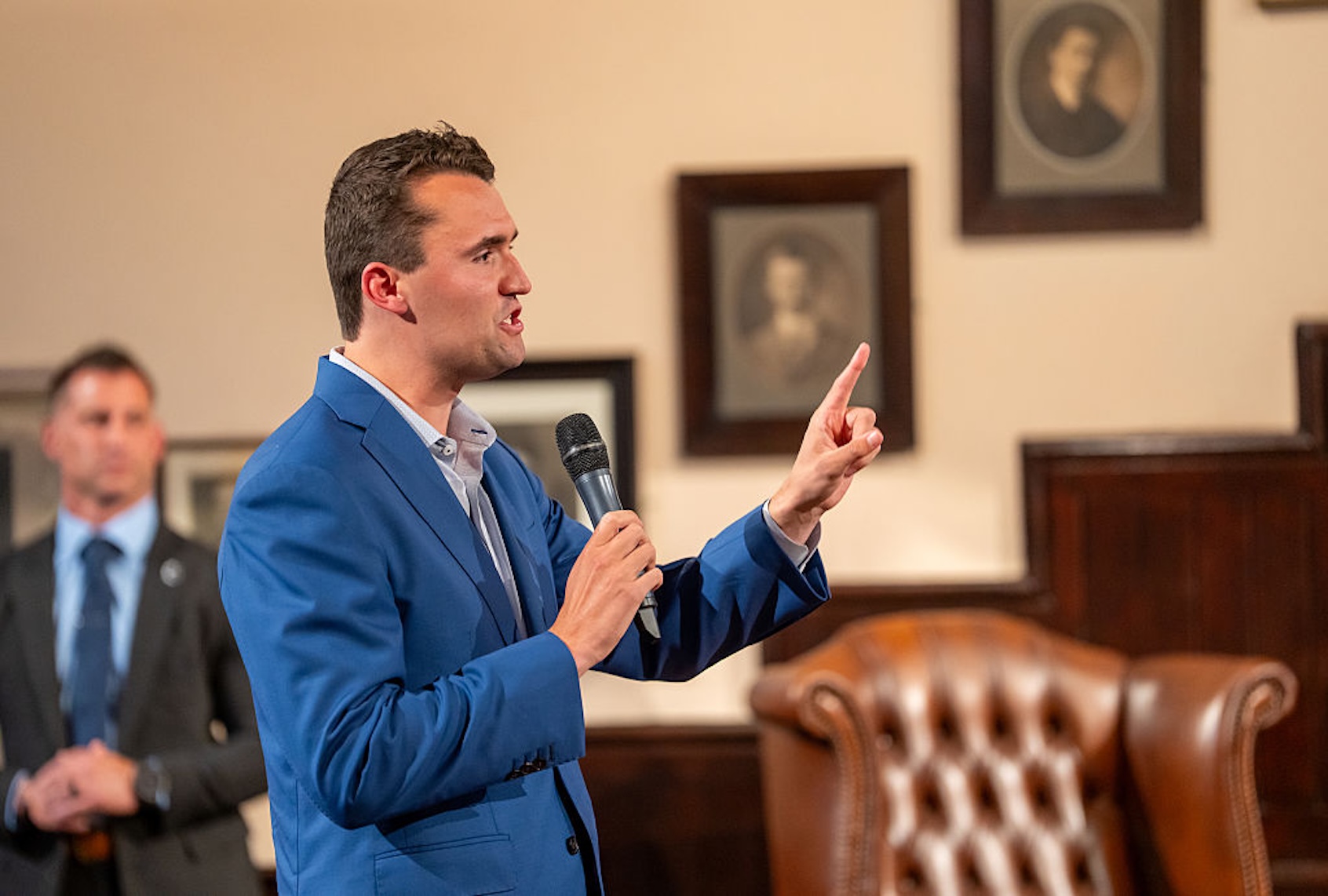World
“Debate Me” Culture Threatens Civil Discourse After Kirk’s Death

Following the tragic murder of conservative activist Charlie Kirk in Utah, a wave of commentary has emerged, arguing that his public engagements, particularly the college campus debates he popularized, represented a vital aspect of civil discourse. On September 11, 2023, columnist Ezra Klein of the New York Times claimed that Kirk exemplified effective political persuasion and advocated for a necessary tradition of public dialogue. However, this portrayal of Kirk as a modern-day Socrates seeking truth through rhetorical challenge overlooks a critical reality: genuine civic dialogue is increasingly rare, and Kirk’s approach may have contributed to this decline.
Kirk was known for his “Prove Me Wrong” events, which drew significant attention but often prioritized entertainment over substantive discussion. Critics argue that his style embodied the rise of the “Debate Me” Bros, a phenomenon that has transformed public discourse into a spectacle. These individuals, often young and predominantly male, engage in debates that revolve around emotionally charged topics such as race and religion, while neglecting critical issues like infrastructure and public health.
The “Prove Me Wrong” format originated on platforms like YouTube in the early 2010s. Channels such as Jubilee have garnered millions of views, capitalizing on a formula that requires no expertise, only the confidence to engage in debate. This model has permeated social media, with platforms like TikTok and Facebook showcasing casual debates among users who may lack substantial knowledge on the topics they discuss. Even mainstream media, exemplified by The Joe Rogan Experience, often features discussions framed as debates, despite many participants lacking expertise.
While the appeal of these debates lies in their entertainment value, they rarely address critical public policy issues. The emotional intensity of topics discussed serves primarily to attract viewers, sidelining nuanced discussions necessary for a healthy democracy. Critics liken this phenomenon to an unrealistic imitation of civil discourse, arguing that it degrades the quality of public debate.
As articulated by Joe Walsh, a former GOP representative and Kirk’s mentor, Kirk was a provocateur rather than a facilitator of genuine dialogue. This trend reflects a broader issue among the “Debate Me” Bros, who often feel excluded from traditional spaces of intellectual discourse. While there are valid concerns about elitism and gatekeeping in these environments, the notion that everyone is equally qualified to discuss any topic is a misunderstanding of the requirements for productive discourse.
For a democracy to thrive, it is crucial that debates are accessible yet grounded in expertise and fair argumentation. Participants should not only aim to persuade but also be open to being persuaded. This level of discourse is rooted in the liberal arts, which fosters critical thinking and effective communication skills. Ironically, many proponents of the “Debate Me” culture, including Kirk, have criticized liberal arts education, undermining the very foundation necessary for meaningful dialogue.
A troubling aspect of the current discourse is that individuals often take those without substantial knowledge seriously. The blurring of performance and genuine debate risks eroding the foundations of democratic life. True public discourse, which encourages collaboration and understanding, requires effort and depth, qualities that are often sacrificed for entertainment value.
As the landscape of debate continues to evolve, the need for authentic civic dialogue becomes more pressing. The allure of the “Debate Me” format should not overshadow the importance of fostering a culture of informed and respectful discussion. Without a commitment to substance over spectacle, the prospects for meaningful democratic engagement remain bleak.
-

 Lifestyle3 months ago
Lifestyle3 months agoLibraries Challenge Rising E-Book Costs Amid Growing Demand
-

 Sports3 months ago
Sports3 months agoTyreek Hill Responds to Tua Tagovailoa’s Comments on Team Dynamics
-

 Sports3 months ago
Sports3 months agoLiverpool Secures Agreement to Sign Young Striker Will Wright
-

 Lifestyle3 months ago
Lifestyle3 months agoSave Your Split Tomatoes: Expert Tips for Gardeners
-

 Lifestyle3 months ago
Lifestyle3 months agoPrincess Beatrice’s Daughter Athena Joins Siblings at London Parade
-

 World3 months ago
World3 months agoWinter Storms Lash New South Wales with Snow, Flood Risks
-

 Science3 months ago
Science3 months agoTrump Administration Moves to Repeal Key Climate Regulation
-

 Science2 months ago
Science2 months agoSan Francisco Hosts Unique Contest to Identify “Performative Males”
-

 Business3 months ago
Business3 months agoSoFi Technologies Shares Slip 2% Following Insider Stock Sale
-

 Science3 months ago
Science3 months agoNew Tool Reveals Link Between Horse Coat Condition and Parasites
-

 Sports3 months ago
Sports3 months agoElon Musk Sculpture Travels From Utah to Yosemite National Park
-

 Science3 months ago
Science3 months agoNew Study Confirms Humans Transported Stonehenge Bluestones









